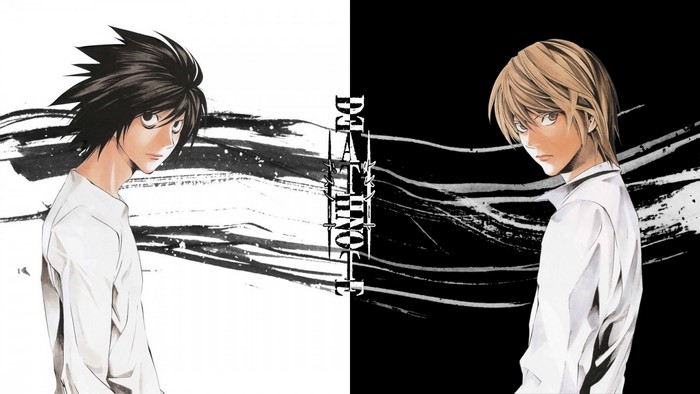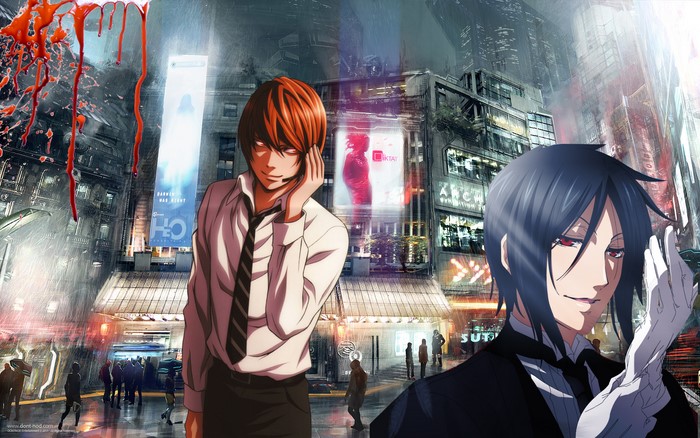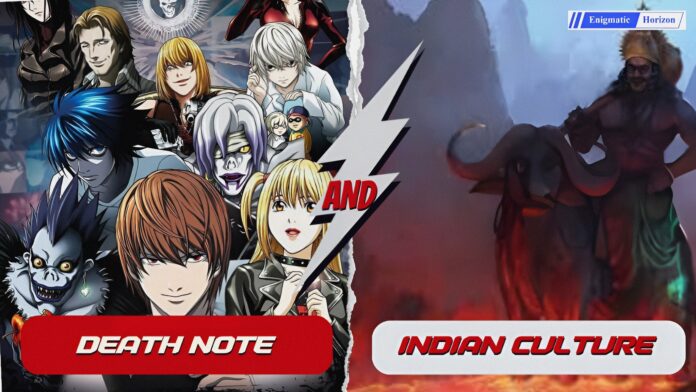Priyal Dholakia (Assistant Editor)
Have you ever wondered what it would be like to hold the power of life and death in your hands? If you are a fan of the anime series “Death Note,” you know exactly what we are talking about. In the world of Death Note, the protagonist, Light Yagami, finds himself in possession of a mysterious notebook that has the power to kill anyone whose name is written in it. As the line between justice and evil blurs, he navigates a dangerous game of black-and-white with the other lead, L, who is a brilliant detective determined to catch him. Join us as we delve deeper into the world of Death Note and explore its fascinating themes and ideas.
Death Note stands out for its unique and captivating storyline. It presents a thought-provoking message that power can corrupt even the most well-intentioned individuals. The series challenges us to question our morals and beliefs about justice. In this detailed analysis, we will explore why Death Note is one of the best anime series of all time and how Indian scriptures address the concepts of death, morality, and justice.
How power can corrupt the idea of justice

The anime perfectly relays the message that “power can corrupt anybody.” Light is an intelligent teenage student who is bored with the ways of the world. But he eventually ends up creating a trap for himself by going on a killing spree. Though at first, he had noble intentions behind using the Death Note, the power eventually twisted and corrupted him. They say, “The road to hell is paved with good intentions,” and Light is a perfect example of this.
The series keeps viewers on their toes throughout with its interesting and gripping plot. It presents us with an interesting dichotomy that keeps us hooked till the very end. When Light obtains this power to kill, he utilizes it in hopes of creating a utopia in which he is the “God of the New World”. Criminals, and only criminals, are to be punished in hopes of a perfect society. But the series goes on to challenge our morals with questions like: Is it right to kill individuals who have done wrong and will do wrong again? Can they be reformed? The series forces us to confront such pressing questions and pry for answers.
Though Light started out as the lead character, he soon becomes the antagonist of the series. He is pitted against L in an epic battle of good vs. evil. They are both unique and likable in their own ways. Light and L both wanted the same thing – a just and better world – but their approaches were different. Light believed in killing criminals to create a perfect society, while L believed in capturing them lawfully and reforming them, if possible. The conflict between Light and L makes for an engaging story that leaves a lasting impression on us as viewers.
Exploring the parallels between Death Note and Indian spirituality
There are some striking similarities we can establish between the themes conveyed in Death Note and Indian spirituality. As expressed in the anime, ancient Indian wisdom also taps into the deep knowledge of ideas like justice, morality, and death. Let us look at and explore each of them in detail.
Justice and morality
Death Note explores the concepts of justice and morality, wherein Light believes that he has the right to use the Death Note to punish criminals and create a better world. Similarly, Indian culture also depicts gods and goddesses fighting against evil and injustice. For instance, Bhagvan Rama in the Ramayana, who is considered the embodiment of morality and justice, fights against the demon king Ravana to establish righteousness. However, according to Indian culture, killing is justified only in the context of war, where people are willingly committed to sacrificing their lives in pursuit of a common goal. No individual is granted the undue power to kill anyone as per their own whims and fancies.
Moreover, Indian culture has always believed firmly in the transformative power of granting justice to wrongdoers. The story of Ratnakar, who transformed from a criminal to the revered sage Valmiki, is one such powerful example of how justice and fairness can transform even the worst of criminals. One more such example is that of King Janaka, who was initially known for his pride and arrogance. However, when he came into contact with the sage Ashtavakra, the sage pointed out the flaws in his thinking. Janaka was humbled and eventually transformed into a wise and just ruler. These stories show that even those who commit great wrongs can be transformed and redeemed through the power of righteousness and justice.
Death
The Shinigami mythology has a significant influence on how Death Note views death. It upholds that all living beings have predetermined lifespans and that death is a natural part of life. Similarly, in Indian culture, the concept of death is seen as a natural part of the cycle of birth and rebirth, with the soul moving on to another life after death. Death is not seen as an end but rather as a continuation of the journey of life.
Karma
The idea of justice in Death Note can be compared to the concept of karma in Indian culture, where the actions of an individual determine their fate. The nature and timing of a person’s death are believed to be dependent on their karmic debt. Light’s actions and decisions throughout the anime ultimately lead to his downfall, reflecting the Indian belief that good deeds lead to positive karma while bad deeds lead to negative karma. In Indian culture, karma is often depicted as a force that determines a person’s destiny. This concept is also reflected in Death Note, as the characters are constantly battling against the consequences of their own actions.

Dharma
The theme of the battle between good and evil in Death Note can be compared to the Hindu concept of Dharma, which refers to the righteous path of duty and morality. The characters in Death Note are constantly struggling to determine what is right and what is wrong. This reflects the Indian belief that one must follow their dharma to maintain balance in the universe. In both Death Note and Indian philosophy, the battle between good and evil is seen as an ongoing struggle. The characters must constantly make choices that will affect the outcome of their experiences. The Mahabharata is a standing example of this, where Sri Krishna enlightens Arjuna on the significance of upholding dharma (righteousness) above everything else.
Death Note’s relevance and core essence continue to echo in the current times as well. It touches on the idea that power can corrupt anyone and highlights the dangers of taking justice into our own hands. It forces us to question our own sense of morality and beliefs about justice and whether we are “perfect” enough to make that call. In a world where atrocities are committed every day, the story of Death Note’s themes of justice, morality, and power leave us looking for a lot of unfound answers.
